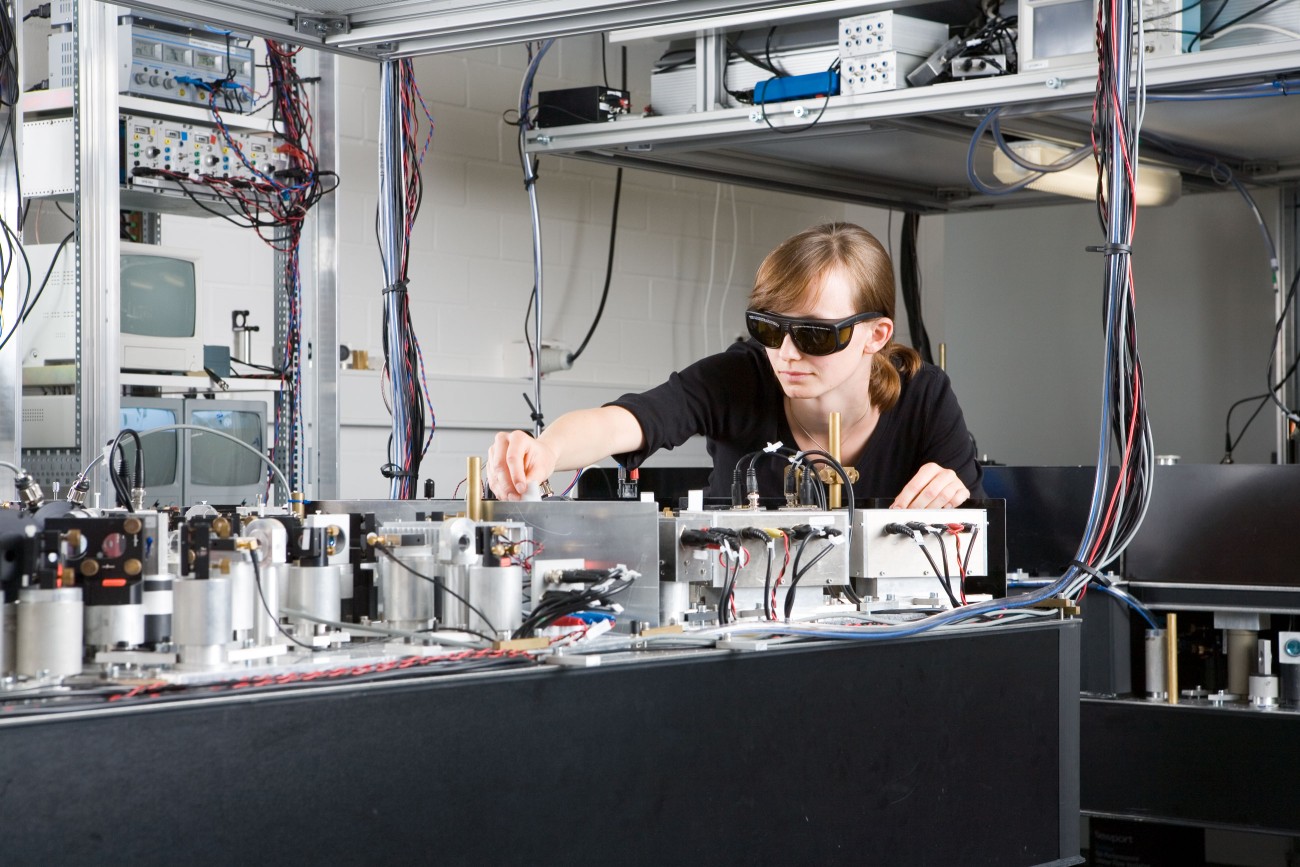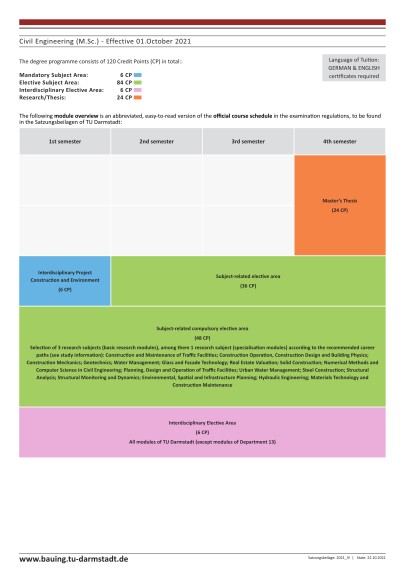Bauingenieurwesen – Civil Engineering
Master of Science; tuition language: German and English
The following English language content is for information purposes only. The legally binding content can be found on the corresponding German website.
Description
The Master of Science in Civil Engineering at TU Darmstadt is a four-semester programme and consists of 120 credit points (CP). You will deepen the knowledge you have already acquired in civil engineering and analyse it from a natural science and engineering perspective. You will learn to analyse and solve complex technical problems, whereby the development of innovative solutions is also a central component of your studies. The degree programme is bilingual, with the first two semesters being offered predominantly in English.
The Master's degree programme is divided into different areas, which give you plenty of scope for personal specialisation:
Compulsory area (6 CP):
At the beginning of the programme, you will take the compulsory area, which consists of the module ‘Interdisciplinary Project Building and Environment’ (IPBU). Here you will work on practice-orientated tasks that will help you to combine different specialist disciplines and develop a holistic understanding of construction and environmental technologies.
Subject-related elective area (84 CP):
The specialised elective area offers you numerous opportunities to set your own individual focus. You first choose three research subjects (basic research modules), which provide you with the basic knowledge for an in-depth examination of the respective subject areas. You then decide on in-depth research specialisation modules from one of the selected research subjects. The range of modules includes both the FB 13 module catalogue and the module catalogue of all research subjects at TU Darmstadt.
You can choose from the following research subjects:
· Building Construction and Building Physics
· Materials Technology and Restoration
· Construction, Maintenance and Rehabilitation of Transport Facilities
· Planning, Design and Operation of Transport Facilities
· Construction Technologies and Management
· Construction Mechanics
· Geotechnics
· Water Management
· Hydraulic Engineering
· Sanitary Engineering
· Glass Structures & Facade Technology
· Solid Construction
· Numerical Methods and Informatics in Civil Engineering
· Steel Construction
· Structural Analysis
· Structural (Health) Monitoring and -dynamic
· Environmental, Spatial and Infrastructure Planning
· Real Estate Valuation
General elective area (6 CP): This area gives you the opportunity to look beyond the boundaries of your subject area. Choose from the wide range of courses on offer at TU Darmstadt to expand your interdisciplinary skills.
Thesis (24 CP)
Study Regulations with Semester Course and Examination Schedule (German)
Study Regulations with Semester Course and Examination Schedule (English) (opens in new tab)
| Semesters | 4 |
| Language |
English and German. In the first year you will study predominantly (or entirely, if you wish) English-language modules, and in the second year you will study supplementary German-language modules. Departmental information on the language certificate/classification. |
| Start of studies | Winter semester, summer semester |
| Internship | --- |
| Admission requirements |
1. A degree B.Sc. Bauingenieurwesen und Geodäsie
of TU Darmstadt (reference programme) or an equivalent degree; 2. Additional requirements: Study regulations Competences description |
| Admission procedure | Provided that the admission requirements (entrance examination) are met, there are no numerical admission restrictions. |
| Application |
Application portal and application deadlines
How and when to provide the certification of the bachelor's degree Formal and language requirements for applicants with international qualifications |
| Good to know |
Costs and budget Preparatory courses for international students Pre-Courses, orientation week, getting started Double Degree Programmes Study Abroad Part-time studies Doctoral Studies |



